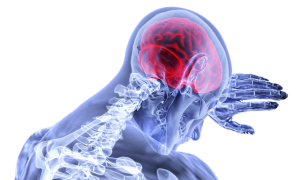The use of any substance can lead to side effects. Some of these alterations to our body can be in our brains. When we abuse and misuse alcohol or drugs, our body and our minds are affected in a negative manner.
Just because society says it is okay that we engage in alcohol consumption from age 21 onward, our brains continue to grow well into our mid-20s. For teenagers, after weeks to months of stopping heavy consumption of alcohol, their brain will still have difficulty functioning properly. Use of substances in any manner can affect brain development, even if you do not abuse drugs or alcohol. Drugs and alcohol affect how neurons direct, obtain, and interpret information.
Among other drugs, heroin and cannabis can overstimulate neuroreceptors in our brains. Since these substances have similar chemical structures to the natural ones our body makes, the use of them can encourage abnormal messages to be transmitted within our brains. The activation of these neurons is not the same for an organically-produced chemical versus an artificial substance.
Other substances, such as stimulants, can increase the amounts of natural neurotransmitters that are released. They can also disrupt transporters by getting in the way of the typical recycling of these neurotransmitters in the brain.
What Areas in Our Brains Are Affected by Substance Use?
Drinking alcohol and using cannabis, opiates, and other illicit substances have major impacts on our minds. These changes to important areas of our brain can set us up for an active addiction, as the alterations lead to compulsive behaviors. The longer we keep using or drinking during active addiction, the quicker the drugs and alcohol become the primary focus for us. Some areas of our minds impacted when we drink or use drugs include:
- Basal ganglia: This part of our brain affects our motivation to do things that are pleasurable: eating, sex, and being around friends and family. It helps us to develop habits and practices. Since this part of our brain houses our “reward circuit,” and drugs overstimulate the basal ganglia, our brain begins to lose please in anything other than the drug. Thus, we desire more and more of the identified substance to achieve a sense of reward.
- Extended amygdala: Stressful emotions (nervousness, grouchiness, unease, and fear) are created in this area of the mind. These same emotions surround withdrawal from alcohol and drugs. The sensitivity to and desire for more and more of our substance of choice increases each time we seek to find our choice substance. Eventually, we engage in use to decrease the discomfort we are feeling, rather than to get the sensation of being high or drunk.
- Prefrontal cortex: This area of our mind is the last area to develop. Rationalizing, planning, and problem-solving occur in this space of our brain, as well as aiding in impulse control.
- Brain stem: Opioids and other substances affects our brain’s core functions, such as sleeping, heart rate, and breathing. This partially explains why death occurs from drug and alcohol overdoses.
How Can I Start to Heal My Brain Today?
Programs, such as alternative rehabs, are wonderful places to help you to cease the use of alcohol and drugs. At the Discovery Place of Burns, Tennessee, we have trained professionals that can aid you on this journey. We have been rated as 4.9 out of 5 stars from friends of alumni, graduates, and family members of past residents of our various alternative treatment programs. Help your brain start to heal today! Come see for yourself what Discovery Place can do for you. Call us today at 1-800-725-0922.


